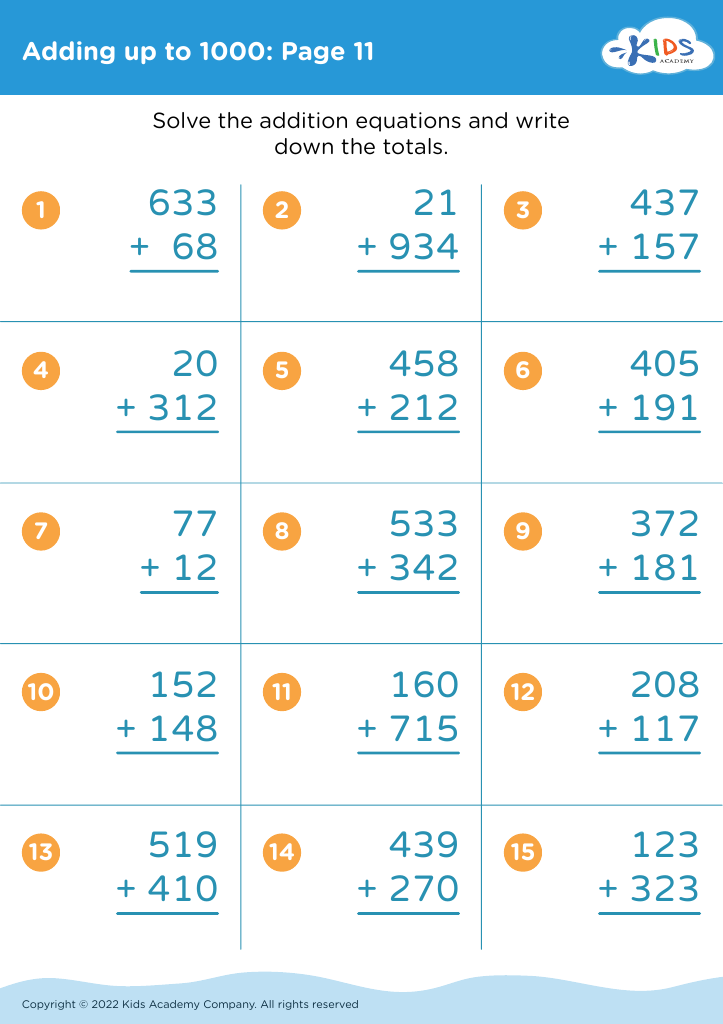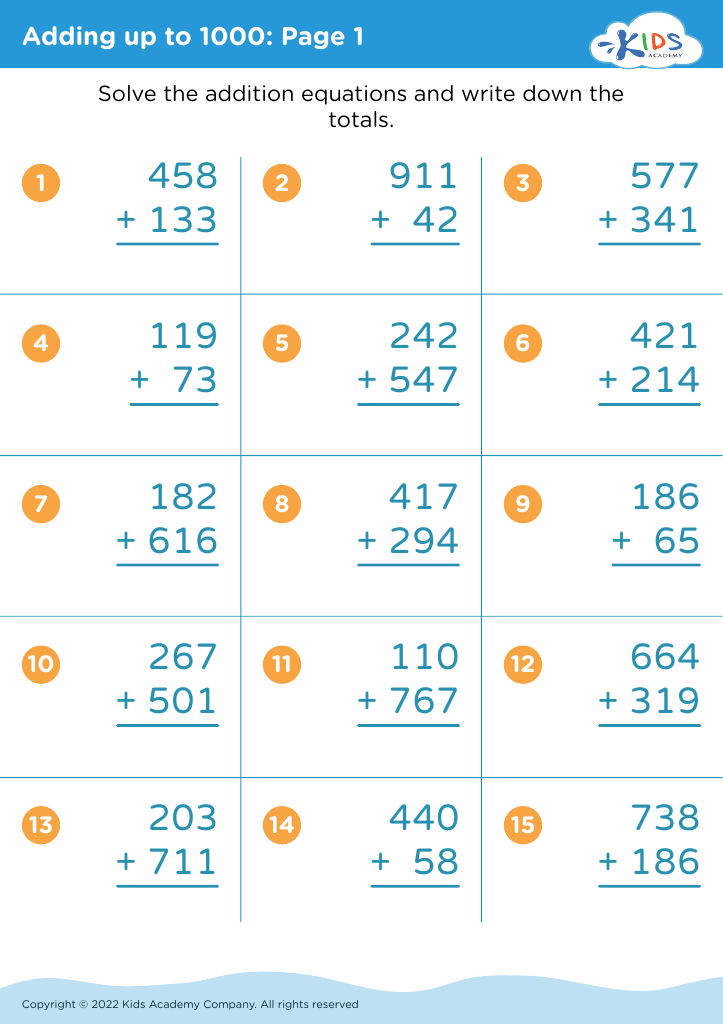Improve math skills Adding up to 1000 Misc Worksheets for Ages 7-9
3 filtered results
-
From - To
Enhance your child's math skills with our "Adding Up to 1000 Misc Worksheets" designed for ages 7-9. These engaging and interactive worksheets provide a fun way to practice addition and number sense, encouraging learners to confidently tackle sums up to 1000. Covering a variety of problems, our materials foster critical thinking and problem-solving abilities. Ideal for classroom use or at-home learning, these worksheets cater to different learning styles, ensuring that every child can excel. Help your young mathematician build a strong foundation and achieve mastery in addition with this comprehensive collection that makes learning enjoyable and effective!
Improving math skills, particularly in addition for ages 7-9, is crucial for both parents and teachers for several reasons. At this age, children's cognitive abilities are rapidly developing, and mastering basic math concepts is foundational for future learning. This is where the skill of adding up to 1000 becomes important. Proficiency in addition not only boosts a child's confidence in mathematics but also strengthens problem-solving skills—a necessity in both academics and everyday life.
For parents, being engaged in their child's math education can foster a supportive learning environment at home. It can lead to increased math fluency, encouraging children to tackle more complex mathematical concepts in higher grades. Teachers can benefit from this focus as well; they can create engaging lessons tailored to improve specific skills, helping students meet curriculum standards and prepared for standardized testing.
Additionally, strong addition skills help with real-world applications, such as managing money, understanding distances, and combining groups, thereby enhancing critical reasoning and decision-making abilities. By prioritizing the development of math skills, parents and teachers jointly contribute to building a solid mathematical foundation that promotes lifelong learning and exploration in the subject.













